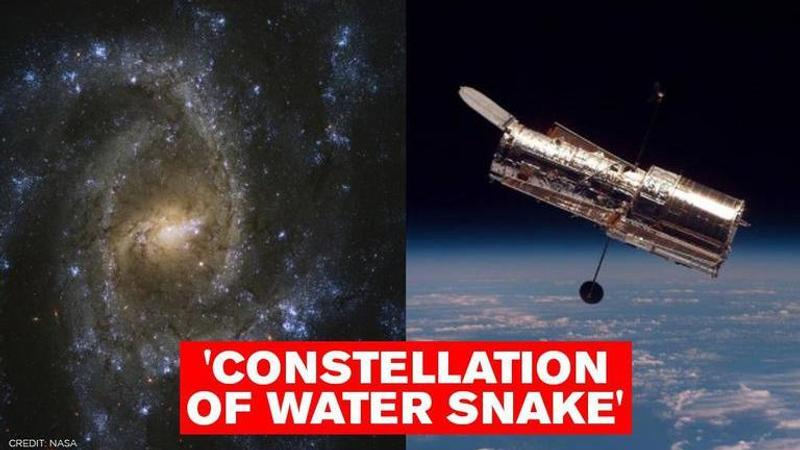Published 13:14 IST, September 20th 2020
Hubble captures galaxy with twisting patterns near constellation Hydra
The barred spiral galaxy NGC 2835 captured by Hubble consists of multiple spiral arms and has width just over half that of the Milky Way, according to NASA.

On September 18, NASA featured a spectacular image taken by the Hubble telescope observed in the distant southern constellation of Hydra, the water snake. The spiral galaxy NGC 2835 consisted of spiral arms and a dense supermassive black hole positioned in its center. According to NASA's release, the rare galaxy observed near snake-like constellation visibly had twisting patterns to the human eye and has an approximate width of half the size of the Milky Way galaxy. NGC 2835 mass was found to be million times than that of the sun and had dense cold gases surrounded around its structure with several large star formation regions.
Galaxy was captured as part of PHANGS-HST, a survey with Hubble that "aims to study the connections between cold gas and young stars in a variety of galaxies in the local universe,” NASA revealed. Further, there were vibrant blue areas, observed in the outer spiral arms of many galaxies, witnessed in NGC 2835 that showed near-ultraviolet light emitted from it. This lightening indicates the ongoing star formation, NASA said in the press release. Also known by the scientific names such as ESO 564-35, LEDA 26259, and UGCA 157, the galaxy was first discovered by German astronomer Wilhelm Tempel on April 13, 1884, according to a science journal. It is found to be situated some 65,000 light-years across and is estimated to be half the size of the milky way.
[This Hubble image shows NGC 2835, an intermediate spiral galaxy approximately 28.5 million light-years away in the constellation of Hydra. The color image was made from separate exposures taken in the ultraviolet, visible, and near-infrared regions of the spectrum with Hubble’s Wide Field Camera 3. Credit: NASA]
100,000 star-forming regions
The unique spiral galaxy was photographed as Physics at High Angular resolution in Nearby GalaxieS programme, an initiative that aimed to establish connections between cold gas and young stars in several galaxies in the local Universe, Hubble astronomers said in published research in an Astronomy journal. “Expected to image over 100,000 gas clouds and star-forming regions outside the Milky Way, this survey hopes to uncover and clarify many of the links between cold gas clouds, star formation and the overall shape and morphology of galaxies,” they added.
Updated 13:13 IST, September 20th 2020




